Drug Addiction Treatment in Peabody
Peabody drug rehab for in-patient and out-patient drug detox and alcohol treatment. Addiction and chemical dependency recovery program near Peabody MA. Drug and Alcohol Rehabilitation techniques used in our Essex rehab and detox centers near Peabody. Programs for drug and alcohol abuse that include inpatient and outpatient recovery for addiction are explained as well as the benefits and drawbacks of both. Many health insurance providers will pay for alcohol and drug rehab. Call us to find out what options are available for you.
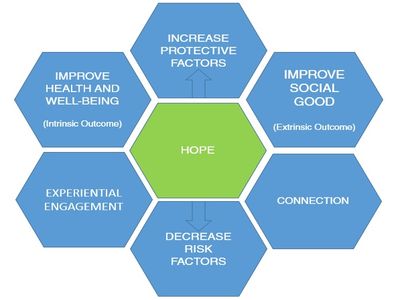
Mental Dependency – What Is Psychological Reliance?
The term psychology is normally implied to refer to behavior processes that relate to the feelings or the mind. The term mental dependence is normally indicated to explain the psychological and also psychological processes that are linked with the development of, and also recovery from, a material use condition or drug addiction.
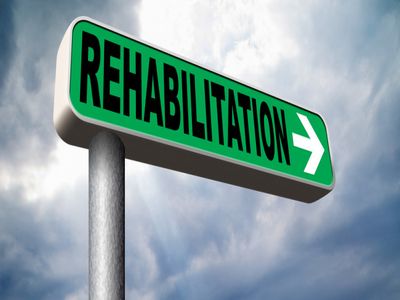
Materials connected with Psychological Reliance
The basic monitoring here is that compounds of abuse are related to both emotional as well as physical facets of reliance; nevertheless, several resources separate the facets of the advancement of a substance use condition and the withdrawal process right into materials that are associated with withdrawal symptoms that are largely emotional in nature. Usually, these materials consist of:
Most uppers, including cocaine and also Ritalin
The majority of hallucinogenic drugs, such as LSD
Cannabis products (although there is installing proof that there could be a significant physical procedure of withdrawal that takes place in chronic customers of cannabis items).
Numerous inhalant products.
Lots of psychotropic medications, such as antidepressant medicines.
Treat of mental reliance
One essential difference that could be made relating to the difference in between medicines that are taken into consideration to cause physical versus psychological dependency is that the withdrawal procedure from some of the drugs that are considered to be strong candidates for physical dependency, such as alcohol, benzodiazepines, and barbiturates, can cause the development of possibly deadly seizures. However, this problem does not typically occur with withdrawal from opiate medicines, which are also taken into consideration to be incredibly physically addicting. The recovery process for people who have established compound use problems to these compounds ought to be purely checked by a doctor or psychoanalyst who focuses on addiction medication to determine any kind of prospective seizure activity and also right away address it.
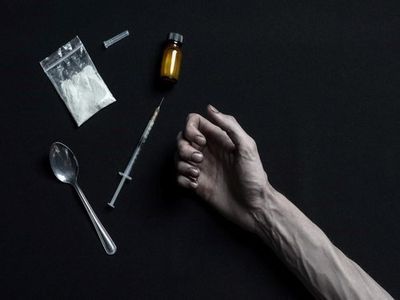
Options for Rehab in Peabody
Drugs
A number of medicines have been discovered to be reliable in dealing with addiction to opioids, alcohol, or pure nicotine in adults, although none of these medications have been approved by the FDA to treat teenagers. Newer substances continue to be researched for possibly dealing with material usage disorders in grownups as well as teenagers, yet none various other compared to those listed right here have actually revealed conclusive results.
Keep in mind that there are presently no FDA-approved medicines to deal with addiction to marijuana, drug, or methamphetamine in any age group.
Buprenorphine reduces or removes opioid withdrawal symptoms, consisting of medicine cravings, without generating the “high” or harmful negative effects of heroin as well as other opioids. It does this by both activating and obstructing opioid receptors in the mind (i.e., it is just what is known as a partial opioid agonist).

Methadone also stops withdrawal signs and symptoms and lowers craving in opioid-addicted individuals by triggering opioid receptors in the mind (i.e., a full opioid agonist). It has a lengthy background of usage in therapy of opioid dependency in adults and is offered in specially accredited methadone therapy programs. In pick situations and in some States, opioid-dependent teenagers in between the ages of 16 and 18 may be qualified for methadone treatment.
Residential Drug Treatment in Peabody
A study in the journal Addiction shows that individuals who obtain help with recovery from addiction are more likely to remain in recuperation for longer periods than those that do not obtain treatment. Sixty-two percent of those who had professional help in treating their dependency continued to be in healing for 3 years after treatment, compared to just 43 percent of those who really did not get therapy. Furthermore, 57 percent of those who made it three years were still devoid of the material after a total amount of 16 years. This reveals that getting expert treatment is important to getting to the best end result.
Residential Peabody drug rehab specifically is often more valuable since it calls for that the individual stay in therapy for the amount of time essential to influence adjustment.
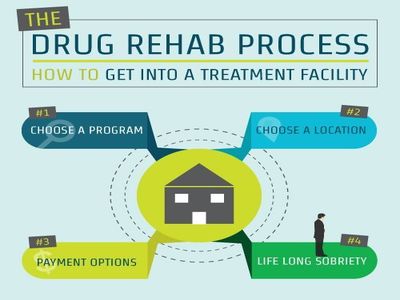
In the NIDA short article it is specified that an essential element of drug dependency therapy is staying in treatment long enough to complete the different components of the program, since this makes it possible for people to arise with the highest level of confidence in their freshly found out abilities as well as tools for remaining in recovery. As a result of this, each of the elements of a high-grade therapy program functions best when it is created to assist people make it through the whole therapy procedure.
Residential rehab provides 24-hour treatment in a setting where the emphasis is aiding individuals accomplish and keep recovery from drug addiction. As a result of this, these programs have the ability to supply a breadth of services that are most likely to help clients establish capacities and tools to stay in recovery well after leaving the program. These consist of:
Medically sustained detox as well as withdrawal, if required.
Medically supported upkeep treatment, if required.
Specific treatments, such as Cognitive Behavioral Therapy.
Family members or pairs therapy.
Building abilities and devices that are required permanently post therapy.
Follow-up treatment after the formalized program ends.
Outpatient Rehab
Outpatient rehabilitation enables customers to live at home as well as join treatment at an outpatient facility during the daytime. This type of program pays for people extra liberty in treatment, offering clients the ability to keep a task and stay on par with day-to-day obligations at home. Those just starting outpatient care might require daily sessions with a therapist or clinical staff, while those further along in healing (or with much less severe addictions) could achieve success with part-time sessions once or twice weekly.
Outpatient programs generally last anywhere from one to 3 months, as this is the window of time in which those in recovery are most at risk to relapse. The length of time a client spends in outpatient care relies on their progression in healing, which takes into account their mental stability and also physical wellness.
An outpatient drug rehabilitation program provides alcohol and drug treatment sessions that could be arranged throughout various times throughout the week. This routine allows clients to continue with their routine responsibilities as well as proceed living in your home, but they are called for to look into therapy at their allocated times for therapy and medication.
Recuperation
Recovery is an objective of alcohol treatment, as well as recovery-oriented systems of treatment are being established to sustain that objective. People who are “in recuperation” know exactly what it suggests to them and just how vital it remains in their lives. They need no official definition, but for the general public and also those who study, assess, and also create policies about addiction, recuperation is a concept that can in some cases appear vague.
Essentially, recovery is a facility and also vibrant process including all the favorable advantages to physical, psychological and social wellness that can take place when individuals with an addiction to alcohol or drugs, or their relative, obtain the help they require.
Therapy
Counseling is an important part of drug abuse treatment for lots of people. Cognitive behavioral therapy, family members counseling, as well as other treatment methods could aid individuals recuperating from opioid dependency keep tidy.
12 Step Programs
The 12-Step ideology originated by Alcoholics Anonymous is used by about 74 percent of therapy. The fundamental facility of this version is that people can aid each other attain and maintain abstinence from materials of abuse, however that recovery can not transpire unless individuals with dependencies surrender to a greater power. The 12-Step movement could be a force permanently for many individuals, however some have problem with exactly what they take a strong spiritual element of the program. Many dependency treatment programs use alternatives to 12-Step technique for those that like an even more nonreligious structure for treatment.
SMART Healing
SMART Recuperation is an abstinence-based, not-for-profit organization with a practical self-help program for people having issues with drinking as well as using. It consists of lots of suggestions and methods to help you change your life from one that is self-destructive and also dissatisfied to one that is useful and gratifying. SMART Healing is not a spin-off of Alcoholics Anonymous. No person will certainly label you an “alcoholic”, an “addict” or “infected” neither “vulnerable”, and if you do not rely on a religion or spirituality, that’s great, too. We show good sense self-help procedures developed to encourage you to stay away and to establish an extra favorable way of living. When you prosper at following our technique, you might graduate from the program, or you could stay around to assist others.
Client-centered methods
In client-centered substance abuse treatment, you could assist decided features of your medicine dependency therapy plan including:
- The rate at which you progress.
- The length of your remain.
- The goals of your program.
Together with specialist team the addict determines precisely just what they intend to leave their stay. Every week, you and also your individual specialist will certainly assess your drug addiction treatment and choose whether or not you are reaching your goals, falling short or surpassing them and also adjust your therapy plan accordingly. The partnering is actually essential here- your goals are your roadmap with treatment.
Psychoanalysis
The psychoanalysis sight suggests dependency is basically a disorder of self-regulation. Dependency is described as a protective approach to prevent feeling of helplessness or powerlessness. Substance abuse is a futile effort to compensate for internal emptiness without success. The addict tries to make up by means of addictive actions for unpleasant subjective states of low self-confidence, uncertainties as well as stress and anxiety. Using medicines supplies a feeling of approval and sensation of short-term self-confident. Addict substitutes an imaginary world, where he remains in complete control, for the real world, where he feels worthless and uncontrollable. Repeated use medicines to gain relief comes to be a way of living. Relief is short-lived, yet in the long-lasting substance abuse comes to be an end in itself. The addiction trouble protects against the user from recognizing concerning her distress, as well as the advancement of emotional capability to self-soothe.
Relapse prevention
An influential cognitive-behavioral approach to dependency healing and treatment has been Alan Marlatt’s (1985) Regression Prevention technique. Marlatt defines four psycho-social processes relevant to the dependency and also relapse procedures: self-efficacy, end result expectations, acknowledgments of causality, and also decision-making processes. Self-efficacy refers to one’s capacity to deal competently and efficiently with risky, relapse-provoking situations. End result expectancy refer to an individual’s assumptions concerning the psychedelic results of an addicting compound. Attributions of origin refer to an individual’s pattern of beliefs that regression to drug use is an outcome of inner, or instead external, transient reasons (e.g., enabling oneself making exceptions when faced with exactly what are judged to be unusual circumstances). Decision-making procedures are implicated in the relapse process. Substance use is the outcome of several choices whose cumulative effects cause consumption of the intoxicant. Moreover, Marlatt emphasizes some decisions- referred to as apparently irrelevant decisions- may appear inconsequential to regression however might in fact have downstream implications that position the user in a risky scenario.
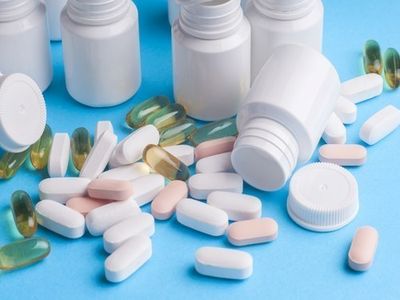
: As an outcome of hefty rush-hour traffic, a recovering alcoholic may make a decision one mid-day to leave the freeway and also travel on side roads. This will certainly cause the creation of a risky circumstance when he recognizes he is inadvertently driving by his old favorite bar. If this person is able to use effective coping strategies, such as sidetracking himself from his yearnings by turning on his favored songs, after that he will prevent the regression risk (PATH 1) and also heighten his efficacy for future abstinence. If, nevertheless, he lacks coping devices- for instance, he might begin ruminating on his cravings (PATH 2)- after that his effectiveness for abstinence will certainly lower, his expectations of positive outcomes will enhance, and he could experience a gap- a separated go back to material intoxication. So doing cause what Marlatt describes as the Abstinence Violation Effect, defined by regret for having gotten inebriated and reduced efficacy for future abstaining in comparable appealing situations. This is a hazardous pathway, Marlatt suggests, to full-on relapse.
Addiction and Dual Diagnosis Connection
When a client is diagnosed with both a substance abuse condition and a mental health and wellness concern, after that it is termed a Double Medical diagnosis. Usual mental health disorders that have the tendency to happen along with addiction consist of:
- Anxiety disorders.
- Moderate to extreme anxiety.
- Personality problems.
- Mood conditions.
- Schizophrenia.
In most cases, signs and symptoms of the psychological health and wellness condition show up first. As they come to be more and more frustrating, the individual might try to “treat” those signs and symptoms by utilizing various drugs. A person that has a hard time with depression may try to enhance their state of mind by taking heroin or prescription medicines. Clients that are living with anxiety may aim to relax themselves by smoking cigarettes cannabis. On the other hand, a person dealing with an eating disorder could try to further their weight reduction attempts by abusing stimulant medications like cocaine or crystal meth.
In various other cases, the medication dependency precedes and because of persistent drug abuse, psychological health concerns can develop later due to that substance abuse alters mind function gradually.
Sober Living House
Sober living homes are team homes for those recouping from a dependency. A lot of these residences are privately owned, although some group houses are owned by organizations and also may even be possessed by charity organizations. Residences are generally situated in quiet areas to assist ensure a serene setting for individuals in very early healing.
These kinds of houses are different from rehab facilities; rehabilitation facilities usually supply a more intensive recovery experience and also give homeowners much less liberty. Residents might also be subject to regular medication testing to demonstrate ongoing sobriety.
